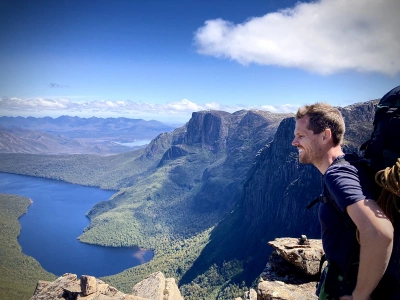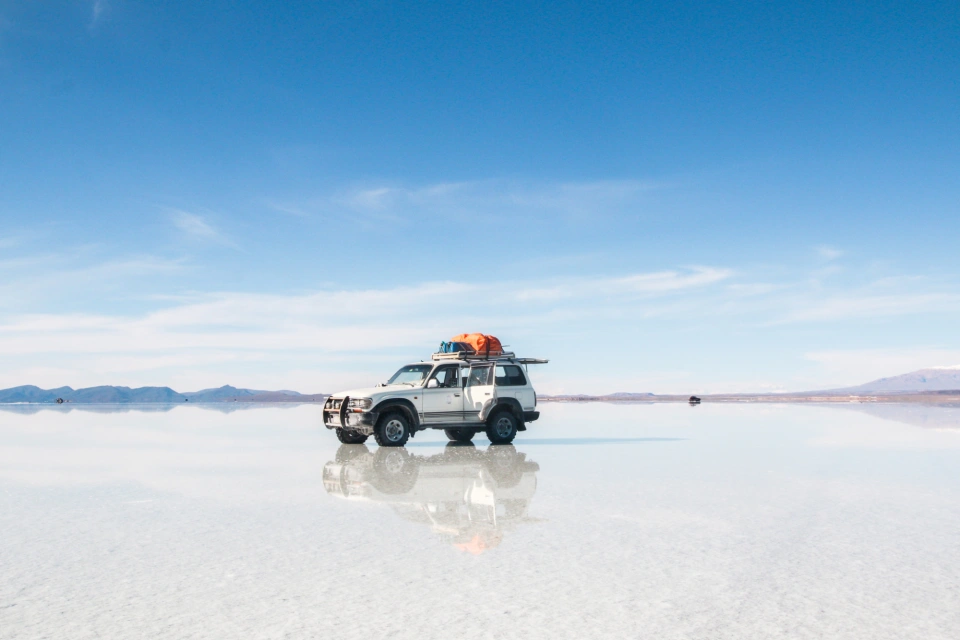How to use Kuno
Kuno is your platform to share this love of Earth.
Kuno is a tool that enables all of us to help build a rich picture of our natural world, and to be part of a global community who seek to provide the knowledge of and connection with nature needed to inspire humanity to save Life on Earth.
Kuno is in its early stages, but with a small and growing community of contributors we are bringing together a map of the beauty and majesty of planet Earth, and the efforts to ensure a future where people and nature can thrive together. You can visit and explore the Kuno development site here
How the Kuno platform for Life on Earth works
Step 1: Become a contributor
Create your contributor profile here
This will prompt you to add your:
- Photo: a high-quality profile photo
- Short Description: a one sentence bio describing you and your role
- Background: a few paragraphs about your background, particularly in relation to your connection with and work in nature
After this is done, click ‘Send us your info’. You’ll soon receive a confirmation email to set your password once your role as a contributor has been approved. If you have any problems, please let us know at Email: life@kuno.earth
Step 2: Login
Once you have setup your profile you can login into your account here
Or you can login via the Kuno development site and click on the person in the purple box at the top right corner of the page. Once logged into your account, you can edit your profile, add your social media links and contact details, and submit an article.

Step 3: Submit an article
People protect what they love. And so it is with nature. Every story of the protection of wild nature globally starts with one person deeply moved by a place, and who feels an imperative to act for its protection. The Kuno platform seeks to make it easy for people from all backgrounds and all walks of life to connect with the natural world, deepen their understanding and love of nature, and through that love, be inspired to act for Earth’s protection.
We would love for you to be part of this by sharing your love and knowledge about any part of the natural world, its cycles, plants, animals, landscapes, human history, stories and efforts to ensure for its protection.
To submit a story to be added to Kuno, once you’ve setup your profile page you can either just email us your article: life@kuno.earth , or click on the ‘Submit Article’ button, in your account. If you’ve got some good pictures to accompany it too, that would be fantastic - please attach them. No article is too big or too small, but as a rule of thumb, 300 – 1000 words is a good length. Kuno will check the article for accuracy, grammar and content, and then layout, upload it and connect it to the relevant places and topics. Kuno reserves the right not to accept an article or ask for it to be changed if it doesn’t fit with our editorial, terms of use or privacy policies. Any problems, questions or help needed let us know: life@kuno.earth
If you're an authorised user for a groups' account - (see below), you'll also have the option of posting the article from that group.

Step 4: Add your group
Would you like your community group or nature organisation to have a page on the Kuno platform too? Great!
Through your account - click on 'Submit an organisation' then fill in the details, add the logo, add your groups' socials links and click 'Submit'.
We'll then activate your groups' account. To post articles through your groups' page, you need to have some approved authorised users for that account. If you want to add authorised users to be able to post through your groups' page - they need to have a Kuno account themselves and be added as an approved user. Any questions or help, send us an email: office@kuno.earth
Step 5: Start a field guide in your corner of planet Earth
The task of building a beautiful and comprehensive map of Life on Earth is a very big one! So Kuno is starting small and working with local communities and partner groups in different parts of the world on some field guides to particular microcosms of our planet. This will help to showcase the beauty, intricacies and needs of nature in these parts of planet Earth alongside the efforts of the local communities and groups working to conserve it.
Some early sites under development include Bruny Island, a globally significant refuge for birds in Australia's island state of Tasmania, and Chitral & Gilgit-Baltistan a sublime region of valleys, glaciers, alpine pastures, lakes, and mountain passes in Northern Pakistan.
If you would like to start a similar guide in your corner of Earth, we would love to work with you to make this happen! Please send us an email: life@kuno.earth
People protect what they love. And so it is with nature. Every story of the protection of wild nature globally starts with one person deeply moved by a place, and who feels a deep imperative to act for its protection.

Phill Pullinger
Kuno is your platform to share this love of Earth.
Kuno is a tool that enables all of us to help build a rich picture of our natural world, and to be part of a global community who seek to provide the knowledge of and connection with nature needed to inspire humanity to save Life on Earth.
Kuno is in its early stages, but with a small and growing community of contributors we are bringing together a map of the beauty and majesty of planet Earth, and the efforts to ensure a future where people and nature can thrive together. You can visit and explore the Kuno development site here
How the Kuno platform for Life on Earth works
Step 1: Become a contributor
Create your contributor profile here
This will prompt you to add your:
- Photo: a high-quality profile photo
- Short Description: a one sentence bio describing you and your role
- Background: a few paragraphs about your background, particularly in relation to your connection with and work in nature
After this is done, click ‘Send us your info’. You’ll soon receive a confirmation email to set your password once your role as a contributor has been approved. If you have any problems, please let us know at Email: life@kuno.earth
Step 2: Login
Once you have setup your profile you can login into your account here
Or you can login via the Kuno development site and click on the person in the purple box at the top right corner of the page. Once logged into your account, you can edit your profile, add your social media links and contact details, and submit an article.

Step 3: Submit an article
People protect what they love. And so it is with nature. Every story of the protection of wild nature globally starts with one person deeply moved by a place, and who feels an imperative to act for its protection. The Kuno platform seeks to make it easy for people from all backgrounds and all walks of life to connect with the natural world, deepen their understanding and love of nature, and through that love, be inspired to act for Earth’s protection.
We would love for you to be part of this by sharing your love and knowledge about any part of the natural world, its cycles, plants, animals, landscapes, human history, stories and efforts to ensure for its protection.
To submit a story to be added to Kuno, once you’ve setup your profile page you can either just email us your article: life@kuno.earth , or click on the ‘Submit Article’ button, in your account. If you’ve got some good pictures to accompany it too, that would be fantastic - please attach them. No article is too big or too small, but as a rule of thumb, 300 – 1000 words is a good length. Kuno will check the article for accuracy, grammar and content, and then layout, upload it and connect it to the relevant places and topics. Kuno reserves the right not to accept an article or ask for it to be changed if it doesn’t fit with our editorial, terms of use or privacy policies. Any problems, questions or help needed let us know: life@kuno.earth
If you're an authorised user for a groups' account - (see below), you'll also have the option of posting the article from that group.

Step 4: Add your group
Would you like your community group or nature organisation to have a page on the Kuno platform too? Great!
Through your account - click on 'Submit an organisation' then fill in the details, add the logo, add your groups' socials links and click 'Submit'.
We'll then activate your groups' account. To post articles through your groups' page, you need to have some approved authorised users for that account. If you want to add authorised users to be able to post through your groups' page - they need to have a Kuno account themselves and be added as an approved user. Any questions or help, send us an email: office@kuno.earth
Step 5: Start a field guide in your corner of planet Earth
The task of building a beautiful and comprehensive map of Life on Earth is a very big one! So Kuno is starting small and working with local communities and partner groups in different parts of the world on some field guides to particular microcosms of our planet. This will help to showcase the beauty, intricacies and needs of nature in these parts of planet Earth alongside the efforts of the local communities and groups working to conserve it.
Some early sites under development include Bruny Island, a globally significant refuge for birds in Australia's island state of Tasmania, and Chitral & Gilgit-Baltistan a sublime region of valleys, glaciers, alpine pastures, lakes, and mountain passes in Northern Pakistan.
If you would like to start a similar guide in your corner of Earth, we would love to work with you to make this happen! Please send us an email: life@kuno.earth
People protect what they love. And so it is with nature. Every story of the protection of wild nature globally starts with one person deeply moved by a place, and who feels a deep imperative to act for its protection.
Love what you're reading? Support Kuno donate to support them now
Donate hereYou might like...

De Fiets is Niets - The Bicycle Is Nothing

Kew Gardens and Inala team up for ancient Gondwanic species

Cycling Bruny

Roadtrip on another planet
Newsletter
Sign up to keep in touch with articles, updates, events or news from Kuno, your platform for nature
